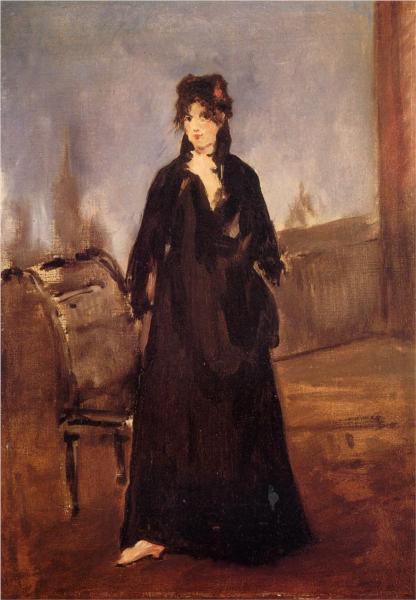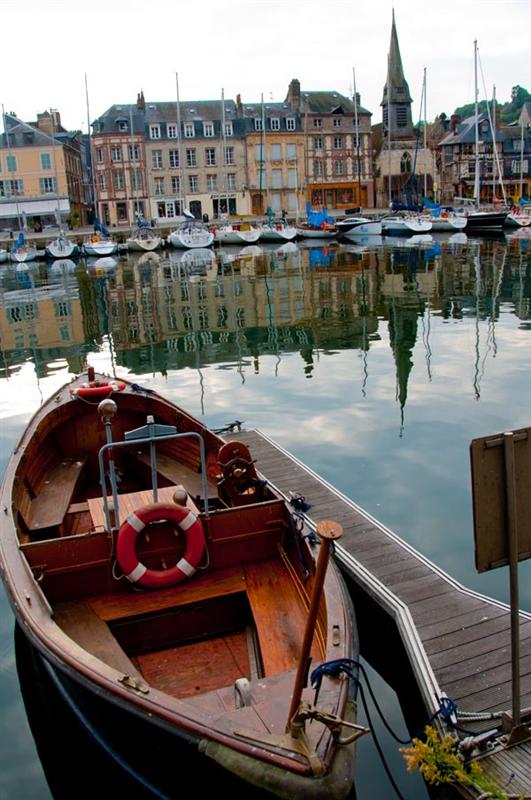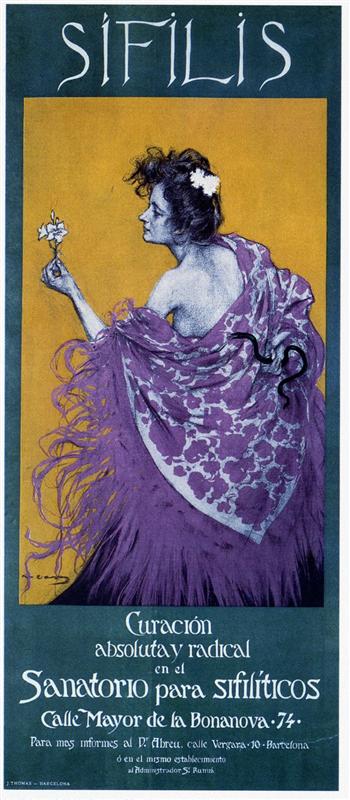Chapter 22 – The End of the Master
Berthe Morisot had, perhaps, next to Juliette, been the most beautiful woman Bleu had inhabited.
Portrait of a Young Woman with a Pink Shoe (Berthe Morisot) – Edouard Manet – 1868
.Victorine, whose gaze Suzanne had borne over a thousand evenings as the nude stared down from the canvas, judging.
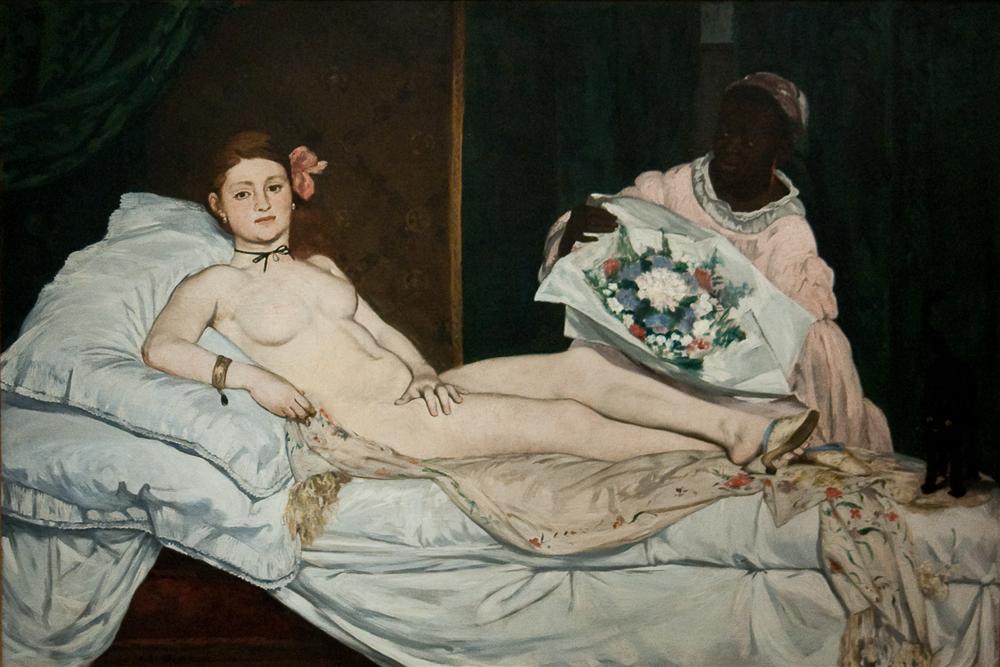 Olympia – Édouard Manet – 1863
Olympia – Édouard Manet – 1863
Suzanne a lonely, fat, grieving footnote: the Dutch piano teacher who married her student
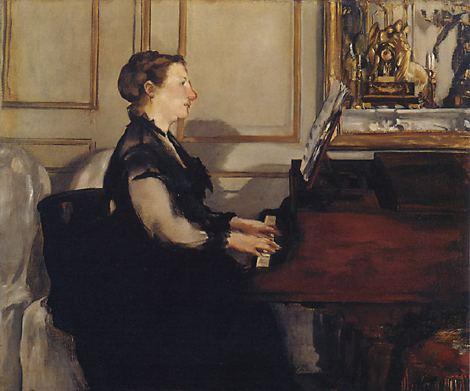 Madame Manet at the Piano – Edouard Manet – 1868
Madame Manet at the Piano – Edouard Manet – 1868
As I say in the afterword, there’s a terrific scene in a short story in Life Studies, by Susan Vreeland, where Victorine comes to the Manet home after Manet’s death. It’s particularly effective, knowing the history, and I think that it was in that story I learned that Olympia actually hung in the Manet household unless it was brought out for an exhibition. After Manet’s death, Monet and Degas would convince the French state to buy Olympia and Dejeunes Sur Le Herb for the Louvre. They both hang in the Musee D’Orsay in Paris, which is where the Louvre keeps it’s 19th Century collection.
–but today, bless her, she had come calling dressed like a bright spring flower.
 Le Repose – Berthe Morisot – Édouard Manet – 1870
Le Repose – Berthe Morisot – Édouard Manet – 1870
She led him to a little inn at Honfleur, where the Seine met the sea, and there they drank wine in a café on the mirror-calm harbor …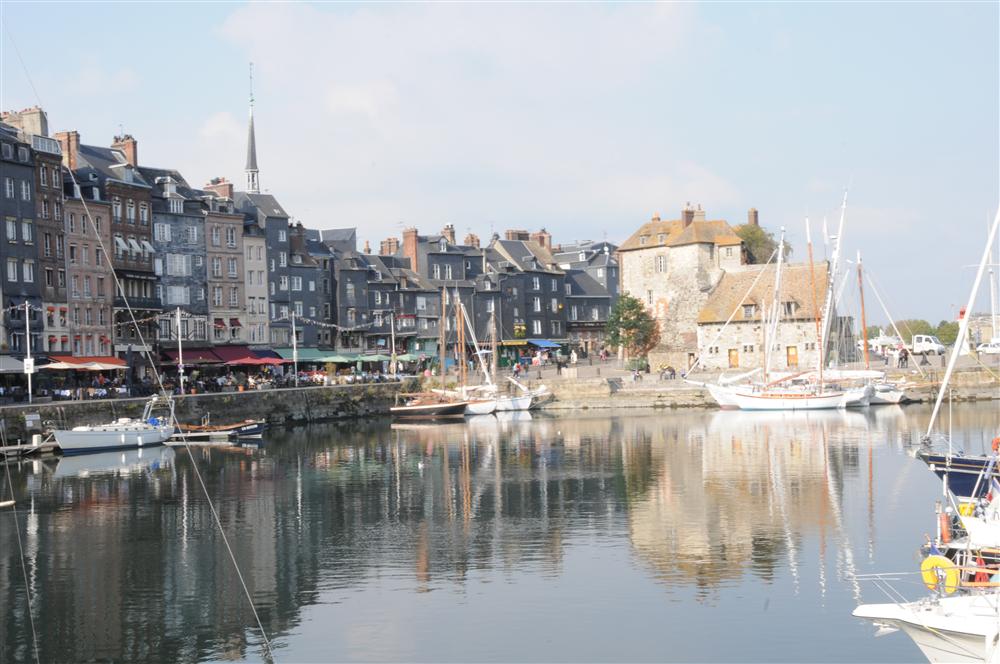 The Harbor at Honfleur
The Harbor at Honfleur
This is the little town where the Seine meets the sea, that Monet would so often escape to, and where he, in fact, first studied painting au plein air (outside) with Boudin, who was from here. Just around the corner to the left, is the hotel Cheval Blanc, where Monet and Camille stayed when he was painting his enormous Luncheon on the Grass. You can still stay there.
Another photo I took of the harbor at Honfleur.
…painted side by side, and walked the beach at sunset.
 Just around the corner from the harbor is a boardwalk that leads you through a park dedicated to Monet, and comes out here, on the beach, where on a given evening, you’ll still see painters set up. I think the factories across the Seine lend a quality <cough> to the air that makes for spectacular sunsets.
Just around the corner from the harbor is a boardwalk that leads you through a park dedicated to Monet, and comes out here, on the beach, where on a given evening, you’ll still see painters set up. I think the factories across the Seine lend a quality <cough> to the air that makes for spectacular sunsets.
“Syphilis has been good to us,” said the Colorman.
“Very good,” Bleu said.
Again, the Ramon Casas poster for Sifilis, the opera, I guess. The only thing weirder than drawing a personna of Syphilis for a poster is writing an opera for it. Considering the number of artists alone that Syphilis killed in the late 19th Century, I’d say that it must have been on par with AIDs as a plague. And many who died of the disease were diagnosed with something else, or died due to complications caused by the disease. A doctor does not tell a gentleman’s widow that he died of syphilis.

